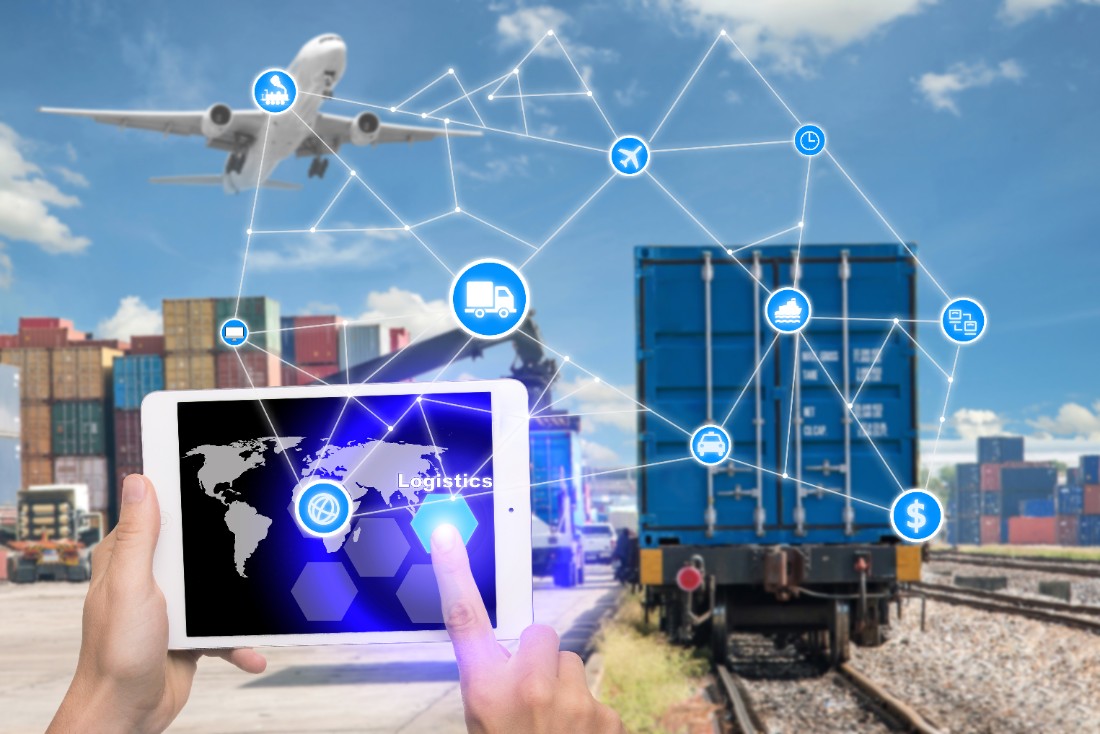It wasn’t until the COVID-19 pandemic hit and exposed loopholes in freight forwarding. For example, there was a shortage of personnel for packaging and organising shipments since people were required to work from home. However, it wasn’t all bad. The upside to the pandemic is that the industry became more receptive to these technological advancements for any future disruption.
Unlike regular transportation operations, freight forwarding is more complex since it's done internationally. It involves the shipping, storage, and management of goods and services across borders. The process is done via air, sea, or land through truckloads and railway transport using load boards like this one.
Freight forwarding is a very critical element in the trade and business world. It ensures that both small and large enterprises receive enough supply to aid in their successful running. Therefore, optimising it means benefiting millions of businesses globally.
If you’re looking to upgrade your freight forwarding operations, here are some of the technological advancements you should look out for:
1. Artificial Intelligence (AI)
Artificial Intelligence is the use of computer software to assimilate human intelligence. AI is used to perform tasks that human beings would have ideally done. It's a technology that has been warmly accepted in different industries, such as manufacturing.
In freight forwarding, AI can execute several tasks, including using robots and machines for packaging and arranging goods in the transportation vessel. It helps to save on time and cut the cost of human labor.
Artificial Intelligence can also be fitted on the vessels to help predict any mechanical error. It will help plan for maintenance to be done in time and to avoid accidents that would have occurred from using broken machines. Other than that, early maintenance will mean reduced downtime making the process to be on time to serve the needs of the end-users.
2. Machine Learning
Machine learning is a type of AI that uses data to predict outcomes. It's quickly gaining traction across different industries to help predict customer behaviour. It’s also used to aid in critical decision-making and problem-solving.
In logistics, it’s used to predict the best routes for shipping in the freight industry. The company inputs data on previous performance from using different routes, and the technology analyses the data and decides on the best routes. Alternatively, the software can predict problems in a given truck route, which will help the management avoid them for successful transportation.
Machine learning can also help classify products sold via e-commerce platforms for air or ocean-associated freight. Classification will help reduce the transaction cost had all the products been charged similarly for shipping. As a result, the purchase cost will decrease depending on the product, and sales for the online business will increase. In return, more products will be ordered for shipping, and the logistic company will benefit.
3. Predictive Analysis
Traditional predictive analytics used internal transactional data and history to predict the future. Over time, this method proved inefficient since external factors also affected the forwarding operations. Today's predictive analytics incorporates external data and information to give futuristic outcomes.
According to the 2021 MHI (Material Handling Industry) Annual Industry Report- Innovation Driven Resilience, there has been a drastic increase in the use of predictive analytics in the logistics and supply chain industry from 17% in 2017 to 30% in 2019. It further states that about 57% more companies are expected to join the bandwagon making a technological trend to look out for in the industry.
The innovation can predict weather events that will inform air cargo safety. It can also give insight into how events such as port strikes may affect the shipping process. When a company has the upper hand information about a port strike, they may decide against releasing a cargo that would otherwise be held in the port and lead to losses on the company and the linked businesses.
4. Internet Of Things (IoT)
IoT technology has come to replace the use of GPS (Global Positioning System). It refers to interconnected devices that monitor and transmit data using the internet. Before this technology, freight carriers used GPS to track the shipment's location. However, this method was challenged by a myriad of problems. For example, in case of a storm in the ocean, GPS tracking would be lost, and the carriers wouldn't tell the location of the cargo. These problems weakened the reliability of the security of goods being transported.
Today, freight forwarding uses IoT through different devices that are interconnected to allow the transmission of data and information regardless of location. Therefore, if you wish to track your shipment, you can do it from the comfort of your home. It helps you plan when to expect your goods and pick them. It also helps to create transparency between the company and cargo owners.
Moreover, since IoT is a technological upgrade, it's fitted with intelligence to capture existing temperatures, humidity, and pressure, among other kinds of information. Therefore, it’s best suited to monitor the transportation of perishable goods such as fruits and flowers via air. If the temperatures aren’t optimum, they are fixed promptly to avoid losses. In the end, the cargo is transported to the owner seamlessly.
5. Blockchain
Blockchain technology is arguably the most versatile trend today. Although it was initially thought to benefit the financial industry only, this technology has proven indispensable across many industries, including freight forwarding. So how can carriers use blockchain technology?
Technology has come to help with building transparency. First, blockchain can secure contracts between carriers, forwarding companies, and the shipment’s owner. If any of the above parties are looking to secure a contract, they can load cryptocurrency on any blockchain platform. The currency can only be released after each party has honored the contract.
Besides that, blockchain has been used to reduce malpractices during shipping. For example, overloading. If cargo is overloaded, the owner can default payment to the shipper and report them to the relevant authority. Therefore, each party should honor its role without looking for shortcuts. The result is a transparent freight forwarding company that’s efficient in its activities.
It's A New Era!
Although the integration of modern technology in the logistic industry took some time, many companies across the globe are beginning to embrace it. As seen in the article, the benefits of these technological trends serve every player in the industry, from the company to the shipment's owner and the employees involved in between. Therefore, if you're yet to upgrade your freight business to the new technology, consider using some of the trends above. All the best!











